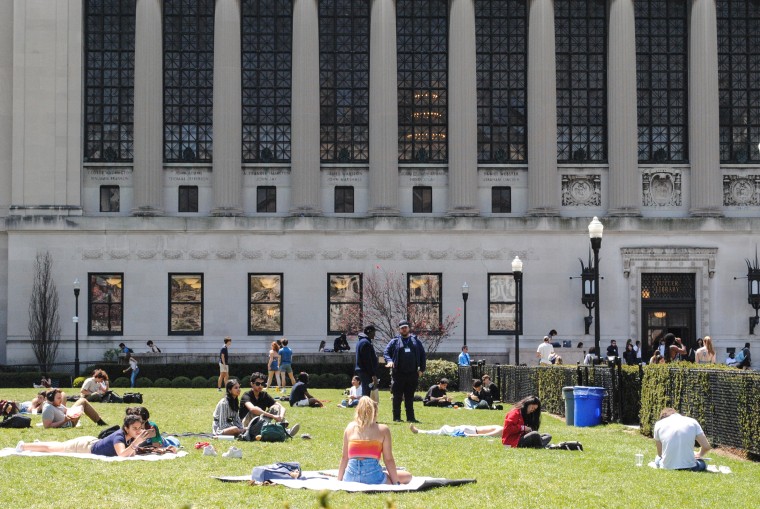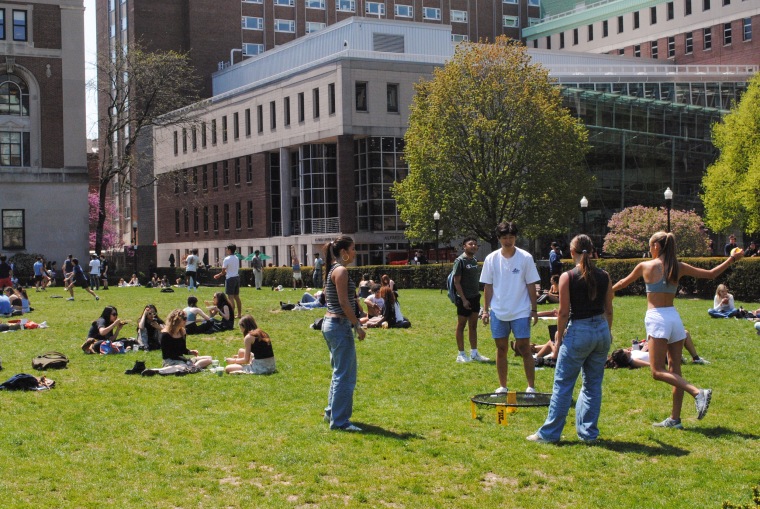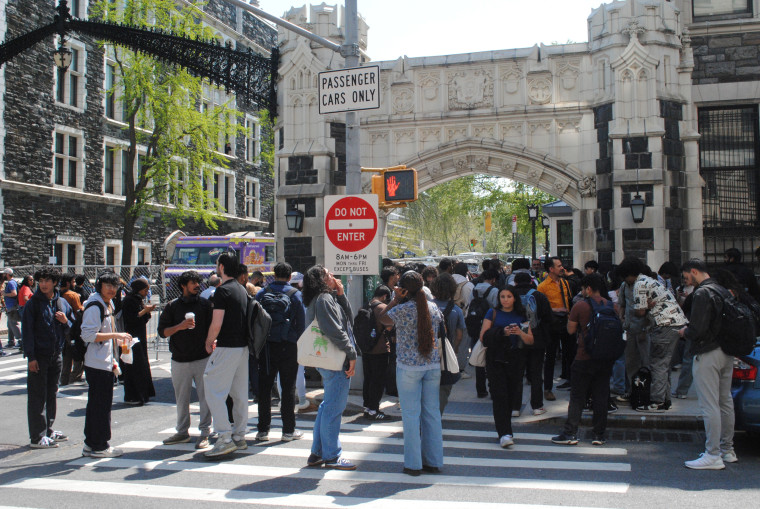Protesters did not set up new tent encampments or demonstrate against the war in Gaza at Columbia University on Thursday as planned.
NBC News reported Wednesday that a group planned to set up tent encampments on the New York City school’s main campus Thursday afternoon.
The encampments would have been likely to inflame tension at the Ivy League school, which for weeks has been at the center of a tug-of-war between the federal government and its students.
They would have been the first tent cities at the university since students took over a building last year and since the Trump administration embraced an aggressive approach to target what it describes as a failure to deal with antisemitism on college campuses.
More than 100 protesters met Tuesday at a community center in Brooklyn’s Bushwick neighborhood to coordinate tent encampments at Columbia for this week. Organizers, whose identities remain unknown, went to extreme lengths to conceal their plans.
NBC News obtained a recording of the meeting, which revealed that students were planning an encampment Thursday at the university’s main campus in Manhattan’s Morningside Heights neighborhood and a second encampment Friday at the nearby Manhattanville campus.
It is unclear whether the encampment planned for Friday will proceed.
Instead of protests Thursday, the scene on campus included students enjoying one of the first warm days in New York City this spring. Dozens of students lay out beach towels, snapped selfies under the sun and tossed around Frisbees.
There were, however, signs of what the day was expected to bring.
Outside the university gates on 116th Street and Broadway, several New York police officers gathered — but they were gone by 2 p.m., an hour after the protests had been expected to begin.

A handful of people who appeared to be security guards in plainclothes circled the planned site of Thursday’s protest before it was expected to begin.
Donovan Cole, 27, a Ph.D. student studying philosophy and education, said the student body’s attitude toward protests seems to have changed since the encampments a year ago. Gone are the days when students felt free to set up tents, take over academic buildings and march for days, as they did last spring, he said.
“There was obviously an antagonistic relationship between the student body and the institution last year. But at the core of that was a kind of faith … that they were both engaging in at least some degree of good faith,” he said. “The student body has sort of felt that’s no longer the case and, rather than producing a sort of stronger outcry of protest, has produced actual legitimate fear in the student body.”

Last month, the Trump administration began terminating federal research grants at several of the country’s most prestigious universities, demanding significant changes to how schools operate. The administration has argued that the universities failed to protect Jewish students amid war protests.
Columbia was the first university the administration targeted. It conceded to a number of the government’s requests, including that it adjust its admissions process, implement “greater institutional neutrality” and hire three dozen new security officers.
The administration similarly challenged Harvard University, which rejected its proposals and sued the federal government.
On Wednesday, President Donald Trump signed a series of executive actions that would enforce stricter oversight of foreign donations to universities and change how they are accredited.
Immigration authorities have apprehended at least three Columbia students in recent weeks. Among them was graduate student Mahmoud Khalil, who helped lead student protests last year.

About 45 minutes after the protest at Columbia was expected to start, pro-Palestinian student advocates affiliated with City College of New York announced on social media that they were staging a protest at the nearby public college.
It is unclear whether protesters who had intended to be part of the planned Columbia encampment were among the roughly 50 people who gathered outside CCNY’s gates Thursday afternoon, wearing masks and Palestinian keffiyehs.
However, a student protest group affiliated with Columbia shared the CCNY group’s post on social media.
CCNY closed its gates and appeared to start barring students from entering campus while the protest ensued.
On Tuesday, a crowd of protesters at Yale University set up a handful of tents on campus before they disbanded a few hours later.
